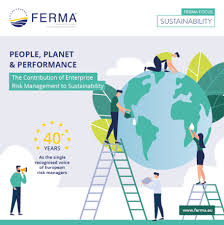The Importance of Sustainability in Today’s World
In a rapidly changing world facing environmental challenges, the concept of sustainability has become more crucial than ever. Sustainability is the practice of meeting present needs without compromising the ability of future generations to meet their own needs.
One of the key aspects of sustainability is environmental conservation. By preserving natural resources such as water, air, and forests, we ensure that these resources remain available for future use. Sustainable practices also aim to reduce waste and pollution, mitigating the negative impact on ecosystems and biodiversity.
Moreover, sustainability extends beyond environmental concerns to encompass social and economic dimensions. It involves promoting social equity, supporting local communities, and fostering economic growth that benefits all stakeholders. Sustainable development seeks to create a balance between economic prosperity, social well-being, and environmental protection.
Businesses are increasingly recognising the importance of integrating sustainability into their operations. Sustainable business practices not only contribute to environmental protection but also enhance brand reputation and attract environmentally conscious consumers. Companies that embrace sustainability are better positioned to adapt to changing market demands and regulatory requirements.
Individuals also play a crucial role in promoting sustainability in their daily lives. Simple actions such as reducing energy consumption, recycling waste, and supporting sustainable products can collectively make a significant impact on the environment. Education and awareness are key in empowering individuals to make informed choices that contribute to a more sustainable future.
In conclusion, sustainability is not just a buzzword but a fundamental principle that guides us towards a more resilient and harmonious world. By embracing sustainable practices at all levels – from individual actions to global policies – we can create a better tomorrow for ourselves and future generations.
Six Essential Tips for Embracing Sustainability in Everyday Life
- Reduce, reuse, and recycle to minimise waste
- Conserve energy by turning off lights and appliances when not in use
- Choose eco-friendly products with minimal packaging
- Support local and sustainable food sources
- Use public transport, walk, or cycle to reduce carbon emissions
- Plant trees and support reforestation efforts
Reduce, reuse, and recycle to minimise waste
By following the mantra of “reduce, reuse, and recycle,” we can significantly minimise waste and contribute to a more sustainable environment. By reducing our consumption, reusing items whenever possible, and recycling materials, we not only lessen the burden on landfills but also conserve valuable resources for future generations. This simple yet powerful tip encourages us to be mindful of our environmental impact and take proactive steps towards a greener and cleaner planet.
Conserve energy by turning off lights and appliances when not in use
Conserving energy by turning off lights and appliances when not in use is a simple yet effective way to promote sustainability in our daily lives. By being mindful of our energy consumption habits, we can reduce unnecessary electricity usage and lower our carbon footprint. This small action not only helps to save energy and reduce utility bills but also contributes to environmental conservation by decreasing greenhouse gas emissions associated with power generation. Embracing this practice empowers individuals to play a proactive role in preserving natural resources and fostering a more sustainable future for all.
Choose eco-friendly products with minimal packaging
Selecting eco-friendly products with minimal packaging is a simple yet effective way to promote sustainability in our daily lives. By opting for products that use minimal or recyclable packaging, we can reduce waste and lessen the environmental impact of our consumption habits. This conscious choice not only helps in preserving natural resources but also encourages manufacturers to adopt more sustainable packaging practices. Making environmentally friendly choices like this can contribute to a greener future for our planet.
Support local and sustainable food sources
Supporting local and sustainable food sources is a simple yet effective way to promote sustainability in our daily lives. By choosing locally sourced produce, we reduce the carbon footprint associated with transportation and support local farmers and businesses. Additionally, opting for sustainable food sources helps protect the environment by encouraging practices that conserve natural resources and promote biodiversity. Making conscious decisions about where our food comes from not only benefits our health but also contributes to a more sustainable food system for future generations.
Use public transport, walk, or cycle to reduce carbon emissions
Using public transport, walking, or cycling instead of driving a car is a simple yet effective way to reduce carbon emissions and promote sustainability. By opting for these alternative modes of transportation, individuals can significantly decrease their carbon footprint and contribute to mitigating climate change. Public transport, walking, and cycling not only help reduce air pollution but also promote physical activity and improve overall well-being. Embracing these sustainable transportation options can lead to a healthier environment and a more sustainable future for all.
Plant trees and support reforestation efforts
Supporting reforestation efforts by planting trees is a powerful way to contribute to environmental sustainability. Trees play a vital role in absorbing carbon dioxide, purifying the air, and providing habitats for wildlife. By actively participating in tree planting initiatives, individuals can help combat deforestation, mitigate climate change, and enhance biodiversity. Reforestation not only restores ecosystems but also promotes a healthier planet for present and future generations to enjoy.

